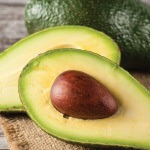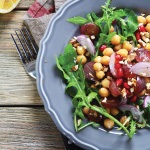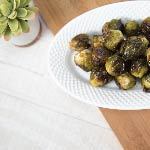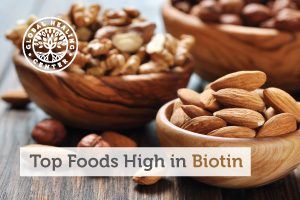
Biotin is a water-soluble, B-complex vitamin. It's found in all living cells and is essential for cellular metabolism.[1] Biotin is also known as vitamin H, coenzyme R, and vitamin B-7. Confusingly, it is also sometimes called vitamin B-8, but this is unofficial and relatively uncommon (B-8 more often refers to inositol). Biotin is used by all living creatures — plants, animals, and even single-celled organisms.
In animals, biotin is essential for metabolizing proteins and converting sugar into usable energy.[2] It's necessary for hormone production and helps maintain healthy blood sugar levels. Biotin promotes healthy hair, skin, and nails. Mammals, including humans, cannot synthesize biotin and must obtain it from dietary sources.
Biotin deficiency is rare but dangerous. The vitamin is crucial for normal fetal development and a deficiency during pregnancy can result in birth defects.[3] Symptoms of biotin deficiency include brittle nails, hair loss, muscle pain, nausea, fatigue, anemia, and dry skin.[4]
Not All Sources of Biotin Are Equal
There are two forms of biotin found in living cells: free and protein-bound. The latter is just what it sounds like — biotin bound to protein. It’s mostly found in bacteria and animal cells. Free biotin, which is not bound to a protein, is more common in plants.[5]
The human body can use both forms of biotin, but free biotin is more immediately bioavailable. With protein-bound biotin, your body must break the bond to convert biotin into a form it can use. Free-biotin doesn’t require this step — it’s easily absorbed and utilized in the body. Due to their high free biotin content, plant-based foods are generally better dietary sources of the vitamin than animal-based foods.[6]
Protein-Bound Biotin Sources
Many foods contain some biotin, but the concentration in most is negligible from a nutritional standpoint. Other foods have a very high biotin content. Organ meats, like kidneys and liver, are the most concentrated dietary source.[4] Milk, dairy products, and seafood are other rich, animal-derived sources.[7] Although egg yolks have a high concentration of biotin, they also contain a chemical that interferes with biotin absorption. A diet high in egg whites can actually lead to biotin deficiency.[4]
At Global Healing, we strongly recommend a raw, vegan diet, however, we understand that not everyone will choose this lifestyle. If you must consume animal products, at least opt for organic whenever possible. This can mitigate, though not eliminate, some of the many health risks associated with the consumption of meat and dairy.
Plant-Based Biotin Foods
Although many types of animal-sourced food contain biotin, it's protein-bound biotin. Plants contain free biotin, which is more bioavailable. This means that getting enough biotin from a vegan diet is achievable. Considering the multitude of other health benefits associated with a plant-based diet, it’s a recommended choice.
As we’ve only recently begun to understand the importance of biotin, nutritional experts are still refining accurate methods for measuring biotin concentration in food. As such, estimates of biotin content vary greatly for some foods and are completely lacking for many others. After exhaustive research, we’ve compiled this list of the best biotin foods. Note that values of a nutrient can vary, depending on where it was grown, size, and many other factors, but these values are published from studies and give you a good estimate.
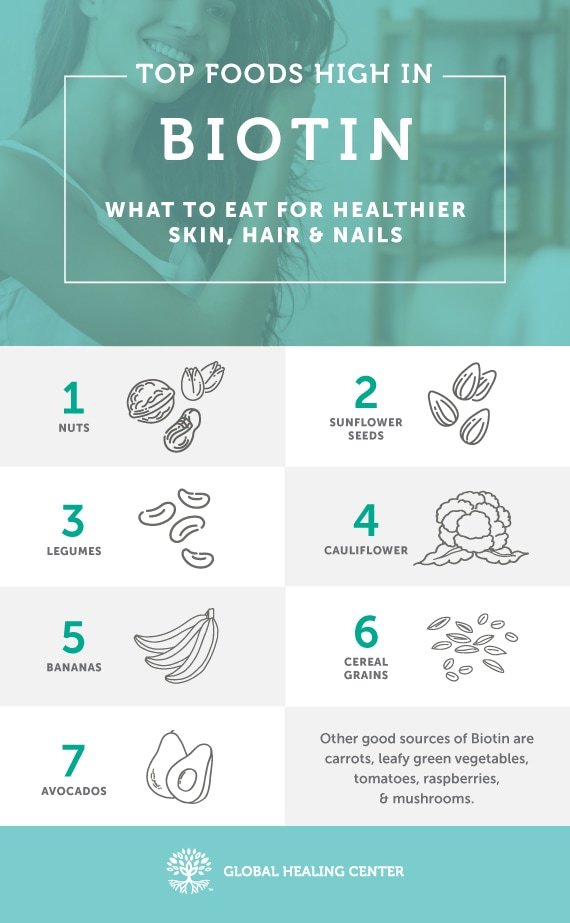
1. Nuts
Although biotin concentration varies, nuts, in general, are one of the best dietary sources of free biotin. One hundred grams of pecans contains about 65 micrograms (mcg) of biotin; the same amount walnuts contains 87 mcg. Nuts are also a great source of energy, omega fatty acids, and other heart-healthy nutrients.
2. Sunflower Seeds
Heart-healthy, high in magnesium, and rich in antioxidants, a handful of sunflower seeds makes a great snack. They’re also an excellent source of biotin. One hundred grams of sunflower seeds contains 252 mcg of the vitamin.[8]
3. Legumes
Legumes are another excellent source of biotin, especially green peas. Whole, raw, dried peas have 34 mcg of biotin per 100 grams; lentils offer 23 mcg of biotin. Most legumes are also igh in folic acid and enhance digestion.[8]
4. Cauliflower
As a cruciferous vegetable, cauliflower is great for detoxing the liver and it's loaded with healthy nutrients, one of which is biotin.[9] A single serving of cauliflower offers up to 5 percent of your daily biotin requirement at between 2 and 17 mcg. Cauliflower is also high in vitamin C and many other health-promoting compounds.[10] Not only is it great as a raw snack, but there are also many cauliflower recipes you can enjoy.
5. Bananas
Generally speaking, most types of fruit are not a very good source of biotin. Bananas are an exception. One, average-sized, peeled banana (about 100 grams) contains 5.5 mcg of biotin.[11] Bananas are also a good source of dietary fiber, potassium, manganese, calcium, iron, magnesium, phosphorus, and vitamins A, C, and B6.
6. Cereals
Many cereal grains are a good source of biotin. Rice bran has a particularly high concentration, 60 mcg per 100 grams. Barley and oatmeal offer 31 and 24 mcg, respectively.[12]
7. Avocados
Avocados are more popular now than ever before and for good cause. In addition to their many positive qualities, avocados are also a decent source of biotin. One whole avocado contains up to 10 micrograms of the vitamin, so don’t be afraid to have a little more organic guacamole.[3]
8. Other Good Sources of Biotin
There are many other good sources of biotin. Carrots, leafy green vegetables, tomatoes, raspberries, and mushrooms can all contribute significantly to your daily biotin intake. Yeast also has an incredibly high biotin content, as do yeast-derived products like whole-grain bread.[11]
Top Biotin Foods
| Vegan Food Sources of Biotin | |
|---|---|
| Food | Biotin Content (mcg/100 grams) |
| Sunflower seeds | 252 |
| Walnuts | 87 |
| Pecans | 65 |
| Rice bran | 60 |
| Green peas, dried | 34 |
| Barley | 31 |
| Oatmeal | 24 |
| Lentils, fresh | 23 |
| Cauliflower | 17 |
| Mushrooms | 16 |
| Avocados | 10 |
How Much Biotin Do You Need?
Compared to other vitamins, much is still unknown about biotin. There is currently no official daily recommended intake of biotin and hypotheses of what it should be vary drastically. The U.S. National Library of Medicine recommends a daily allowance of as little as 30 micrograms.[13] At the other end of the spectrum, the National Institutes of Health (NIH) recommends a daily allowance ten times higher — 300 micrograms for adults.[14]
Based on my experience, I tend to believe that our biotin requirements are at the high end of that scale. As a water-soluble vitamin, biotin doesn’t accumulate in your body like a fat-soluble vitamin. That means you need to replenish your supply regularly. If you take in more than you need, your body will simply excrete the excess biotin through urine. Individual requirements vary, but I recommend using the following chart as a general frame of reference for your daily biotin intake:[14]
| Life Stage | Adequate Intake (AI) for Biotin, Daily |
|---|---|
| Infants | 50 mcg |
| Children under 4 | 150 mcg |
| Adults and Children Over 4 | 300 mcg |
Generally speaking, adults need more biotin than children, and pregnant or breastfeeding women may need more than other adults. Many health conditions or deficiencies influence the amount of biotin you need. It's best to consult your trusted healthcare professional for guidance with your personal biotin needs.
Incorporating Biotin into Your Diet
Biotin is present in a wide variety of food. With a little planning and reliance on whole, real food, obtaining enough biotin through diet is achievable for most people. Biotin is also produced by the microflora in the gut, but it's not known how much that contributes to meeting biotin requirements.[5] Ultimately, the biotin produced by the beneficial microorganisms in the gut is added to the biotin obtained from food.
Because of its role in strengthening hair and nails, many types of shampoo and lotion boast about containing biotin. Be aware that this is just a marketing ploy. Biotin isn't easily absorbed by hair or skin, so if there’s any biotin in these products you won’t receive its full effects. Ingestion is the most effective way to get biotin into your system.
If you want more biotin than your current diet provides, or if you suffer from a biotin deficiency, then supplementation may be the answer. If you are searching for a biotin supplement, consider giving Global Healing’s Biotin a try. Biotin by Global Healing is a natural, vegan supplement, extracted exclusively from plant sources. As always, do your research and consult your healthcare practitioner to find what works best for you and your unique needs before committing to any new supplement.
References (14)
- Pinon, Violaine, et al. “Biotin Synthesis in Plants. The First Committed Step of the Pathway Is Catalyzed by a Cytosolic 7-Keto-8-Aminopelargonic Acid Synthase.” Plant Physiology, vol. 139, no. 4, Dec. 2005, pp. 1666–1676, 10.1104/pp.105.070144. Accessed 4 Nov. 2016.
- “Vitamins.” MedlinePlus, U.S. National Library of Medicine, 1 Nov. 2016. Accessed 4 Nov. 2016.
- “Biotin.” Linus Pauling Institute: Micronutrient Information Center, Oregon State University, 22 Aug. 2016. Accessed 4 Nov. 2016.
- Coretta, Chinwe, et al. “Biotin.” NC State University, NC State University.
- Claude, Alban. “Biotin (Vitamin B8) Synthesis in Plants.” Advances in Botanical Research, vol. 59, Oct. 2011, DOI: 10.1016/B978-0-12-385853-5.00005-2. Accessed 1 Nov. 2016.
- National Academy of Sciences. Dietary Reference Intakes for Thiamin, Riboflavin, Niacin, Vitamin B6, Folate, Vitamin B12, Pantothenic Acid, Biotin, and Choline. The National Academies Press, 1998.
- Staggs CG, et al. "Determination of the Biotin Content of Select Foods Using Accurate and Sensitive HPLC/avidin Binding." J Food Compost Anal 17.6 (2004): 767–776. PMC. Web. 4 Nov. 2016.
- Watanabe T, et al. "Biotin content table of select foods and biotin intake in Japanese." Int J Anal Bio-Sci. 2014. 2(4):109-125.
- Emily, Wax. “Pantothenic Acid and Biotin.” MedlinePlus, U.S. National Library of Medicine, 1 Nov. 2016. Accessed 4 Nov. 2016.
- Murray, Michael P., and Joseph E. Pizzorno. The Encyclopaedia of Healing Foods. Simon and Schuster, 11 May 2010.
- Hayakawa, Kou et al. “Wide Range of Biotin (Vitamin H) Content in Foodstuffs and Powdered Milks as Assessed by High-Performance Affinity Chromatography.” Clinical Pediatric Endocrinology 18.1 (2009): 41–49. PMC. Web. 4 Nov. 2016
- Calbom, Cherie, et al. Juicing, Fasting, and Detoxing for Life: Unleash the Healing Power of Fresh Juices and Cleansing Diets. New York, Grand Central Publishing, 30 July 2008.
- “Biotin.” MedlinePlus, U.S. National Library of Medicine, 16 Sept. 2016. Accessed 29 Oct. 2016.
- “Daily Value.” National Institutes of Health - Dietary Supplement Label Database, U.S. Department of Health & Human Services, 2016. Accessed 1 Nov. 2016.
†Results may vary. Information and statements made are for education purposes and are not intended to replace the advice of your doctor. If you have a severe medical condition or health concern, see your physician.



